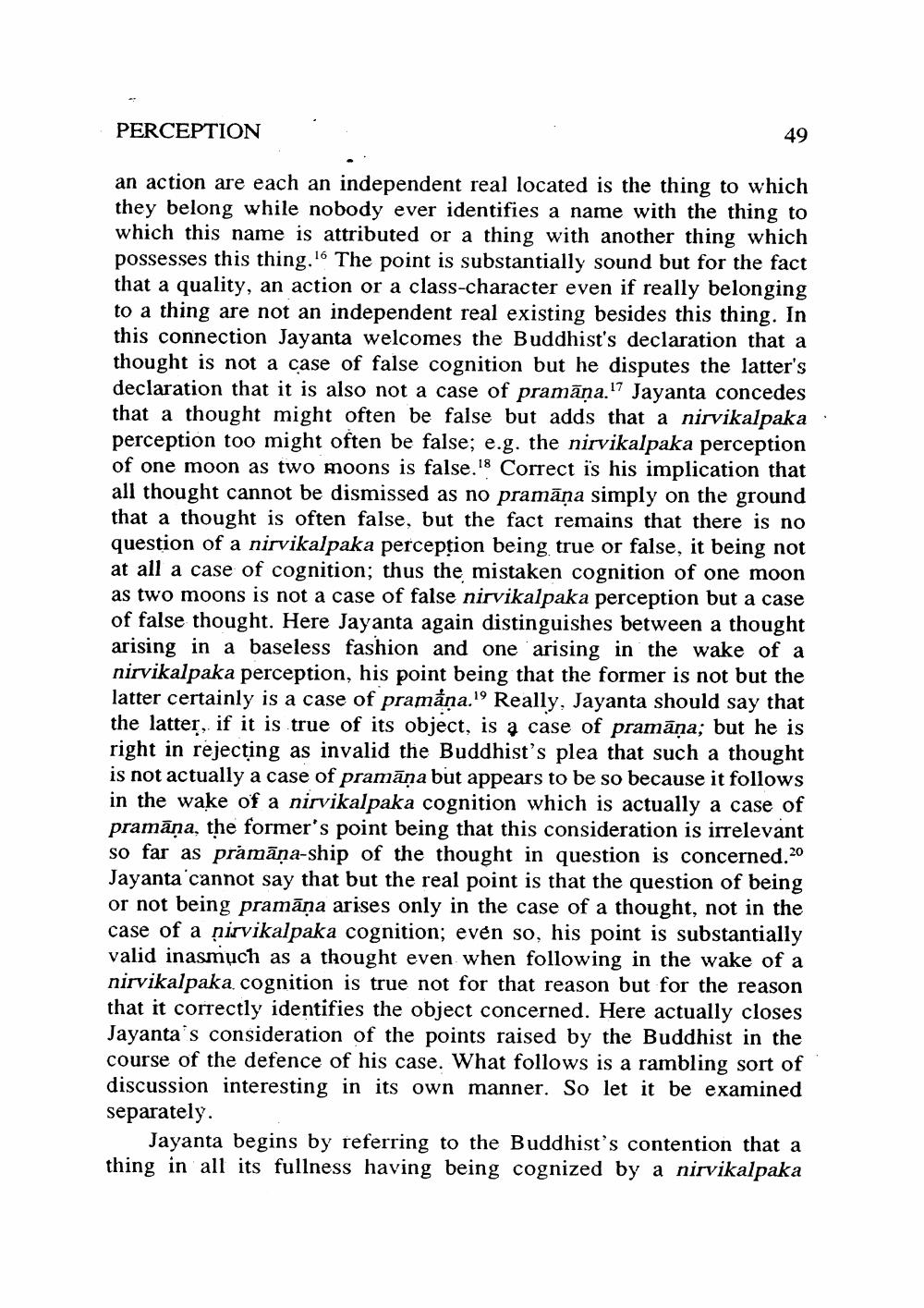________________
PERCEPTION
49
an action are each an independent real located is the thing to which they belong while nobody ever identifies a name with the thing to which this name is attributed or a thing with another thing which possesses this thing.16 The point is substantially sound but for the fact that a quality, an action or a class-character even if really belonging to a thing are not an independent real existing besides this thing. In this connection Jayanta welcomes the Buddhist's declaration that a thought is not a case of false cognition but he disputes the latter's declaration that it is also not a case of pramāņa.7 Jayanta concedes that a thought might often be false but adds that a nirvikalpaka perception too might often be false; e.g. the nirvikalpaka perception of one moon as two moons is false. 18 Correct îs his implication that all thought cannot be dismissed as no pramāna simply on the ground that a thought is often false, but the fact remains that there is no question of a nirvikalpaka perception being true or false, it being not at all a case of cognition; thus the mistaken cognition of one moon as two moons is not a case of false nirvikalpaka perception but a case of false thought. Here Jayanta again distinguishes between a thought arising in a baseless fashion and one arising in the wake of a nirvikalpaka perception, his point being that the former is not but the latter certainly is a case of pramána.'' Really, Jayanta should say that the latter, if it is true of its object, is a case of pramāna; but he is right in rejecting as invalid the Buddhist's plea that such a thought is not actually a case of pramāņa but appears to be so because it follows in the wake of a nirvikalpaka cognition which is actually a case of pramāņa, the former's point being that this consideration is irrelevant so far as prámāna-ship of the thought in question is concerned.20 Jayanta cannot say that but the real point is that the question of being or not being pramāņa arises only in the case of a thought, not in the case of a ņirvikalpaka cognition; even so, his point is substantially valid inasmuch as a thought even when following in the wake of a nirvikalpaka cognition is true not for that reason but for the reason that it correctly identifies the object concerned. Here actually closes Jayanta's consideration of the points raised by the Buddhist in the course of the defence of his case. What follows is a rambling sort of discussion interesting in its own manner. So let it be examined separately.
Jayanta begins by referring to the Buddhist's contention that a thing in all its fullness having being cognized by a nirvikalpaka




